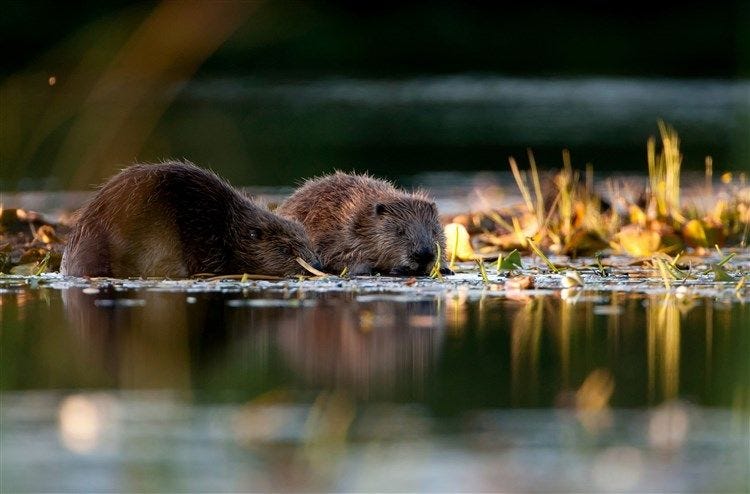Over the last week, a story from the Scottish Highlands has captured the imagination of conservationists, nature-lovers and frankly anyone who thinks Britain could do with a little more magic. Trees for Life has announced a bold £3.6 million “Missing Species” rewilding programme, aiming to restore four keystone animals to selected parts of the Highlands: the lynx, the beaver, the red squirrel and a modern descendant of the aurochs, the great wild grazer that once shaped European landscapes.
It’s big. It’s ambitious. And it tells us something important: The UK is finally rediscovering how to let nature lead.
But here’s the twist that matters for every LettsSafari supporter - you don’t need to own a Highland estate to join the rewilding movement. In fact, your balcony or back garden is the frontline.
Let’s break down what this story means, and where you fit in.
Why these species matter (and what they teach us)
This programme isn’t about scattering charismatic animals on hillsides and hoping for the best. These four species do real ecological work:
Beavers engineer wetlands, slowing floods, storing water and creating habitat.
Lynx control deer numbers, which lets forests regenerate naturally.
Red squirrels maintain diverse woodlands through their quirky caching habits.
Aurochs-type cattle shape open meadows and support plant diversity through natural grazing.
In other words, they re-start natural processes. And once nature’s processes restart, biodiversity follows.
At LettsSafari, this principle is exactly what we champion on a smaller scale: Give nature the right ingredients, and a little space, and it begins to repair itself.
A project for people as well as wildlife
The Highlands initiative isn’t just about ecosystems; it’s about communities too. The programme highlights local economic benefits, eco-tourism, water management improvements and climate resilience. When nature recovers, everyone wins - not just the wildlife.
And that’s where home-scale rewilding fits beautifully. Your garden, balcony or shared green space can support pollinators, restore soil life, cool your local environment and give native species a refuge. Small spaces add up. Always have. Always will.
What large-scale rewilding teaches us about small-scale action
Projects like this Highland reintroduction remind us that rewilding is thoughtful, guided and intentional. It’s not about abandoning land - it’s about designing for nature and then stepping back.
That’s exactly where LettsSafari comes in.
How LettsSafari helps you join the movement
Whether you have a balcony, a courtyard, or a sprawling suburban garden, we help you:
Apply big-ecosystem principles at home
From creating miniature wetlands to building micro-habitats, our monthly rewilding subscription guides you step by step.Understand what nature actually needs
We turn complex ecological ideas, like keystone species, trophic cascades and habitat layering, into simple, joyful actions.See and measure impact
Through seasonal prompts, wildlife spotting tips and soil-health suggestions, you begin witnessing real change right where you live.Join a growing movement
Just as Scotland’s project relies on community engagement, LettsSafari brings together thousands of people restoring nature one patch at a time.
You’re not just gardening. You’re participating in the most hopeful environmental shift happening in the UK today.
A gentle push to get started
Maybe you’re not about to reintroduce a lynx to your garden (your local postman may thank you). But you can invite back bees, beetles, birds, fungi, frogs, hedgehogs and soil life. All of which desperately need more space.
So if the Highlands are gearing up for a wildlife renaissance, why not let your own wild corner be part of the story?
👉 Join LettsSafari today and start your journey from “nice garden” to “mini-rewilded ecosystem.”



